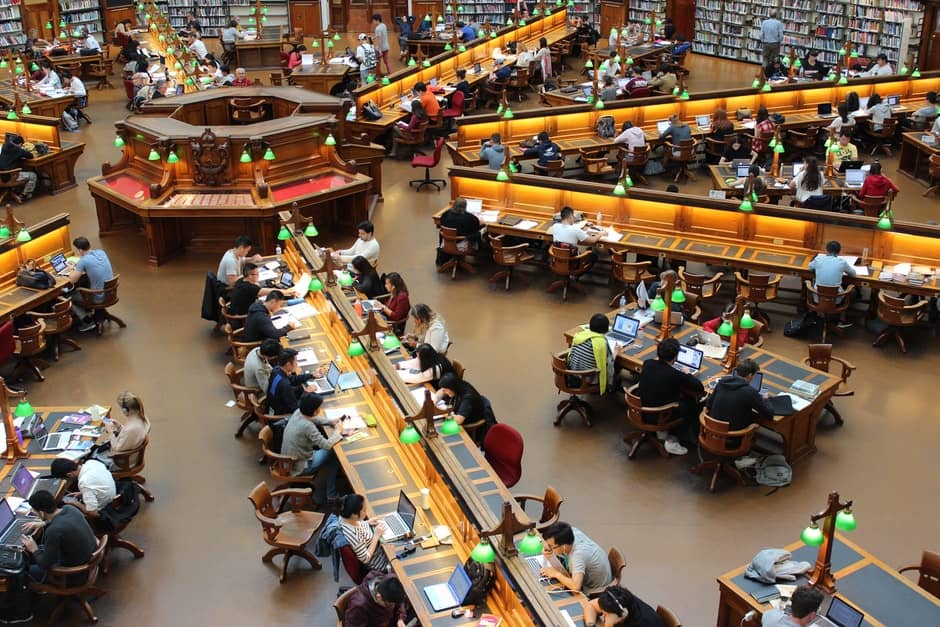Climate change is very real and with pollution levels continuing to rise all around the world, rapid and effective actions need to be taken. The damage caused to air, water, and land due to different kinds of pollution can be minimized if sustainable and eco-friendly practices are introduced. If you are wondering about how to deal with pollution, then the best place to start is within communities, including schools and universities.
Students with the right resources and education are in a unique position where they can actively participate in taking care of the environment and assisting people to do the same. Universities can encourage their students to learn about ways to tackle pollution. As a student, you can look through these essays at https://gradesfixer.com/free-essay-examples/pollution/ to get an idea about how you can contribute to the reduction of pollution. After going through these free essay examples pollution issues will be easier to understand and you will be able to develop theories and practical approaches that will benefit the environment. Students can organize fundraisers to raise money for nonprofit organizations that are engaging in eco-friendly operations. They can also participate in drives to reduce waste and the use of unsustainable products.
As a university student interested in participating in campaigns, you will need to have the right resources. Universities should encourage all students to participate in environmental studies. These studies will help them understand the issues that they are fighting against. The impact of pollution, its contributors, and aggressors should be taught in class so that students are better equipped to deal with the problem. Also Read – Details on Degrees Of Freedom Formula
The following sections detail the actions that universities can take to help people deal with and reduce pollution. Keep reading to know more.
Measures Universities Can Take to Reduce Pollution
There are various ways in which universities can stimulate and rally students to help reduce pollution. Several of these have been discussed below.
1. Organising campaigns about eco-friendly alternatives.
There are many eco-friendly alternatives that people can use in their daily lives. A university can ask its students to organize campaigns where they inform the public about these alternatives. The campaign can cover simple topics like using the train or bus to commute instead of private transportation, or minimizing the use of air conditioners and any equipment that is powered by gasoline.
2. Paper collection and recycling programs.
There is often a huge wastage of paper that is either completely or at least partially unused. As students, you can participate in programs that initiate the widespread collection and recycling of paper. Paper can be collected from local schools, homes, community centers, and even the university and then sent to be recycled.
3. Organics composting drives.
Compositing is not an easy task but it can be done by students if taught properly. If there are spaces around the university that produce a lot of organic waste, students can be encouraged to organize and participate in compositing drives. Their work should be supervised by a teacher, especially when they are packing the compost bins. The compost can be distributed to local farms and homes with gardens as it will make excellent fertilizer.
4. Waste management programs.
Waste management is crucial in every neighborhood. Improper waste management can lead to increased pollution and more toxicity around residential and commercial areas. Students can be taught efficient ways of collecting and disposing of waste so that it does not contaminate the soil or water.
5. Lecture sessions on the importance of green technology and buildings.
This might not seem as effective as the other actions that are more hands-on, but it is important to educate people about the dangers of pollution. Universities can organize lecture sessions that are informative and interactive so that students can ask questions and learn. A lecture series can also be open for the public to attend as everyone should receive adequate knowledge about how to deal with the issues of global warming.
6. Assisting local food suppliers.
University students are often consuming processed and packaged foods which leads to a huge amount of plastic waste. They can be asked to tackle this problem by buying from local food suppliers and helping them to use eco-friendly methods of packaging like paper bags and reusable cutlery. This is something that convenience stores will not do. Local food suppliers also source their produce from local farms and supporting these businesses means reducing carbon footprint. Students can also assist these suppliers to dispose of their waste properly.

Introducing Sustainable Campus Spaces
While students should be given opportunities to go out and help people practice eco-friendly ways of living, they should also focus on doing the same within the school campus. Simple steps can be taken to reduce the use of materials that directly contribute to toxicity in the environment. Some of these steps have been listed below.
- Universities should use environment-friendly cleaning products to clean and sanitize classrooms, halls, and all large public spaces.
- Proper methods of waste management and disposal should be used. Bins can be placed all around the campus and students should be advised to use them whenever necessary.
- University buildings need green technology to cut down on greenhouse gas emissions.
- There should be failsafe and well-functioning disposal systems in laboratories so that any accidental exposure of harmful chemicals can be quickly contained and disposed of. This will help to prevent contamination of the environment or damage to those who were in or around the laboratory.
- Recycling services can be used by every department to reduce unnecessary waste. Recycled materials can be used to create everyday products and can effectively reduce the use of plastics.
With the right motivation, students can do a lot. In the modern world, pollution poses a great threat. Immediate measures need to be taken in order to reduce and reverse the effects. Since students can learn the right methods of pollution control and use them in real situations, universities should provide the necessary education and encourage them to use that knowledge. The help that students and universities can provide in minimizing pollution will go a long way in creating a more sustainable world.





